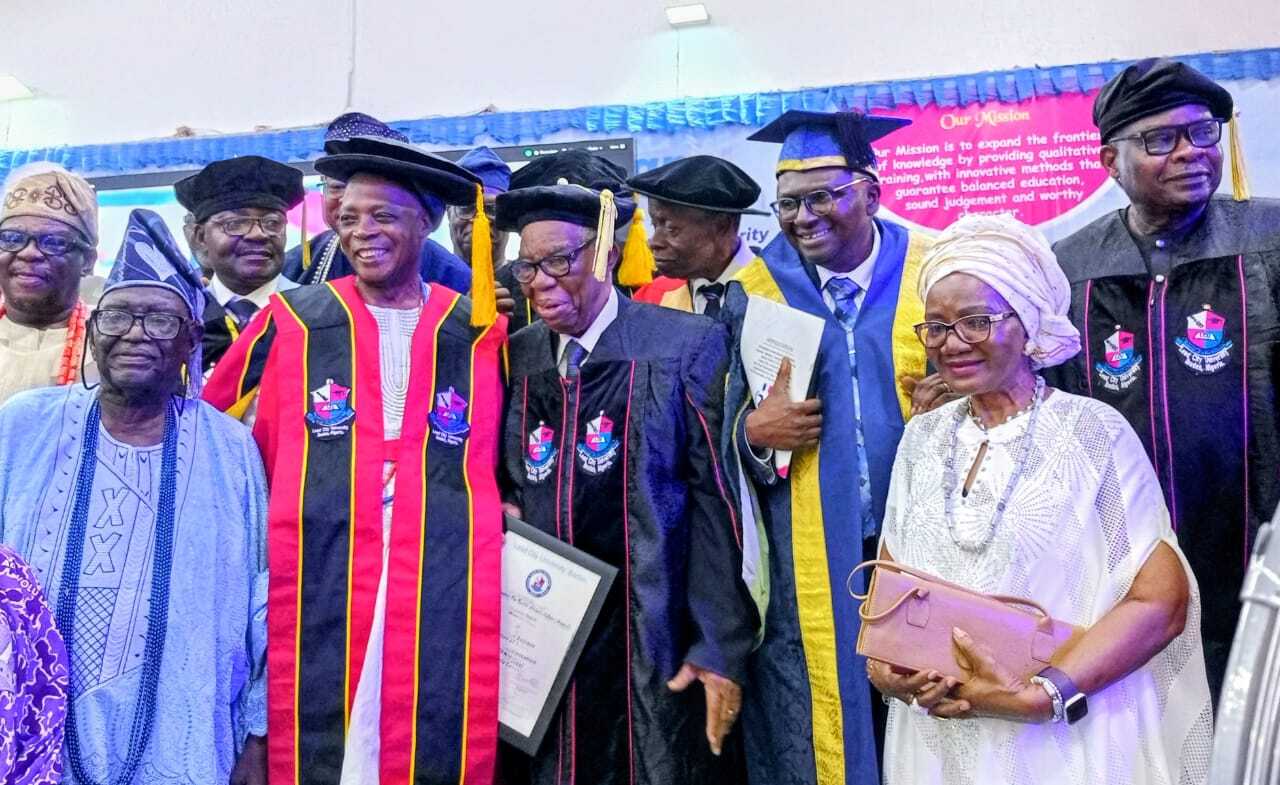The recent blunder committed by the Joint Admissions and Matriculation Board (JAMB) and perennial whispers around the West African Examinations Council (WAEC) are not isolated incidents but symptomatic of a deeper national struggle with technological adoption, institutional integrity, and a fundamental lack of public trust, hence the need for a national conversation on the country’s readiness for the digital future. As the country sprints towards digitisation, IYABO LAWAL explores whether it is building on a foundation of trust, or merely automating its dysfunctions?
Nigeria’s education system, long regarded as one of the cornerstones of national development, has recently been overshadowed by controversies that cast serious doubts on the integrity and efficiency of two of its most critical examination bodies- the Joint Admissions and Matriculation Board (JAMB) and the West African Examinations Council (WAEC).
While these organisations are pivotal in facilitating access to higher education and certifying academic achievement, recent developments, especially events surrounding the 2025 Unified Tertiary Matriculation Examination (UTME) and the last West African Senior School Certificate Examination (WASSCE), have exposed systemic weaknesses that demand introspection, reform, and action.
Indeed, the 2025 UTME debacle set the stage for widespread public scrutiny of JAMB. Approximately 1.95 million candidates participated in this computer-based examination, which aims to revolutionise university admissions in Nigeria.
However, the outcome of that exercise triggered a national uproar. Nearly 1.35 million candidates scored below the pass mark of 200 out of a possible 400, a figure that contradicts expectations and norms, considering the number of candidates and their preparation efforts.
More perplexing to observers were discrepancies, such as candidates scoring exceptionally well in science subjects —physics or agriculture —and yet scoring an F9 (fail) in English Language, a subject crucial for comprehension and communication in all other disciplines.
A query about candidates scoring high in other subjects but recording an F9 in English Language is a legitimate point of confusion for many. From an academic and technical standpoint, this is not an anomaly.
The performance in a subject like physics or agricultural science is measured by a candidate’s ability to apply scientific concepts and principles, solve problems, and analyse data.
While the examination questions are written in English, success depends on subject-specific knowledge, not fluency in the English language. A candidate may have a deep understanding of the scientific content, but may struggle with the grammatical and compositional requirements of the English Language paper itself.
JAMB’s Registrar, Prof Ishaq Oloyede, acknowledged the existence of significant technical problems in the 2025 UTME.
It was revealed that nearly 380,000 candidates were affected by a serious server failure, primarily in Lagos and the South-East. The underlying cause traced back to the failure of a third-party service provider to update critical delivery servers before the examination commenced.
This oversight resulted in candidate responses from the first five days of the exam failing to upload correctly, thereby distorting the official results. Consequently, JAMB had to order a resit for victims of this anomaly, causing uncertainty and distress among students and parents.
Though commendable as damage control, this response highlighted the fragile state of digitisation efforts in the Nigerian examination landscape.
The rescheduled exams, held under significant pressure, saw only marginal improvement in outcomes.
More than 70 per cent of candidates still failed to meet the benchmark, underscoring structural challenges both in education and exam administration.
The technical meltdown exposed not just gaps in technology deployment, but also a lack of comprehensive readiness for fully digitised national exams.
The situation with JAMB, however, is only a chapter in a broader narrative of systemic issues plaguing Nigeria’s examination institutions.
This year’s WASSCE results further complicated public perceptions. When WAEC released results in early August, the initial pass rate was alarmingly low, roughly 38.32 per cent. Within four days, following an internal review that cited technical glitches, WAEC revised the pass rate upward to approximately 62.96 per cent.
The council explained that a “paper serialisation” initiative, intended to enhance examination security, inadvertently caused mishandling of the marking process, particularly affecting key subjects such as mathematics, English language, biology, and economics.
In Nigeria alone, 1.517 million candidates sat for the 2025 WASSCE. However, only 77. 06 per cent of candidates had complete results released, as nearly 23 per cent of their results were temporarily withheld pending verification.
Approximately 192,000 candidates, representing nearly 10 per cent of test takers, were flagged for potential malpractice and did not receive their results, highlighting persistent challenges with examination integrity.
These alarming revelations from WAEC prompted the temporary shutdown of its result portal and raised questions about the robustness of the examination security systems and the accuracy of grading.
Parents, students, and education stakeholders expressed concerns over the fairness and accuracy of the grading process, especially surrounding vital subjects like the English language, which is often a barrier to higher education and employment opportunities when failed.
The details of the initial low and then abruptly improved pass rates fostered scepticism about WAEC’s management and the reliability of its data handling.
Beyond the immediate technical flaws and grading controversies, these twin crises in Nigeria’s examination bodies reveal deep-rooted challenges in the nation’s education governance and digital readiness.
The implosion of JAMB’s 2025 UTME helped expose weak contractual and supervisory standards, inadequate technology infrastructure, and a fragmented system of assessment that fails to combine educational data in a unified and verifiable manner.
The separate systems run by JAMB, WAEC, and others do not share data, resulting in duplication, errors, and opportunities for malpractice.
These structural problems erode public confidence in what should be the country’s most trusted educational institutions.
Moreover, the current model’s reliance on high-stakes single examinations places enormous pressure on both candidates and administrative bodies, exaggerating the impact of any technological or procedural failure. This predicament leads to a cascading loss of credibility for examination results and, by extension, educational certification in Nigeria.

South Africa, for instance, does not have an examination body akin to JAMB. Instead, the education and admission system is built on a point-based school certification model where students accumulate points during their secondary education via continual assessment and final national school-leaving examinations.
In other words, university admissions are based on aggregated points from high school certificates rather than a separate and centralised entrance examination.
This point-based system reduces the pressure on students to excel in a single, stressful examination and prevents the kind of system-wide meltdown witnessed in Nigeria’s 2025 UTME.
It also promotes a broader view of student capability, integrating various academic achievements over time instead of heavily weighting a single-day performance that can be compromised by technical issues or exam-day disruptions. The South African model has its own challenges, including disparities in the quality of education between different schools and potential for grade inflation. Here is how the South African system works. For the final high school exam, students write a national matriculation examination in their final year of high school.
Each subject score is converted into a point value. For example, a 90 per cent score in a subject might be worth eight points, while a 70 per cent score might be worth six points.
Universities use a weighted average of these points to calculate an Admissions Points Score (APS). Each university and department sets its own minimum APS for admission.
For a highly competitive programme like medicine, a university might require a very high APS, whereas a less competitive programme might have a lower requirement. Students apply directly to the universities of their choice, and the universities make admission decisions based on their APS.
There is also the question of cost and efficiency. Running a nationwide computer-based exam for nearly two million candidates requires a tremendous amount of technological infrastructure, logistical coordination, and financial resources.
Government institutions, such as the Independent National Electoral Commission (INEC), have struggled with cyberattacks targeting their election systems.
If an electoral management body faces persistent digital threats, it is unsurprising that examination bodies, often operating with fewer resources and less oversight, suffer from technical failures and security weaknesses.
In a rapidly digitising society, robust cybersecurity, regular system audits, and contingency protocols must be mandatory to maintain public trust and operational integrity.
A possible way forward for Nigeria involves envisioning and building a unified examination and education data platform. Such a platform would integrate registration, examination administration, grading, and verification systems across JAMB, WAEC, NECO, and other relevant institutions.
It would ensure seamless candidate data flow, reduce duplication, enable cross-validation of results, and foster transparency. It would also facilitate real-time audit trails and provide candidates access to verified information, helping forestall disputes and confusion.
Stakeholders, however, noted that digitisation alone will not solve Nigeria’s education dilemmas. Instead, they say there must be an overhaul in curricula, teaching methodologies, school funding, and examination design.
Educationist, Dr Paul Adelola, said high failure rates, which have persisted for decades, highlight deficiencies beyond just administration.
“Poor educational foundations produce underprepared candidates, and even the best technology cannot compensate for that,” he noted.
Public trust requires rebuilding through consistent transparency, accountability, and communication. The shock over the 2025 UTME and WASSCE results produced widespread anxiety among students and parents, many of whom doubted the official explanations.
Education Consultant, Jumoke Olaniran, noted that withholding results, repeated re-examinations, and result revisions suggest systemic instability rather than corrective measures.
Olaniran stated that examination bodies must, therefore, not only fix technical problems, but also commit to education sector reforms that strengthen pedagogical quality, learner readiness, and institutional governance.
“Furthermore, it is worth revisiting the rationale behind making the UTME a mandatory hurdle for all tertiary aspirants. Could Nigeria learn from South Africa’s model, allowing continuous assessment and school-leaving results to play dominant roles in university admissions? Reducing reliance on a high-risk, single-entry examination could spread risk, improve educational outcomes, reduce costs, and relieve both candidates and administrators from the undue burden of an annual testing spectacle,” Olaniran said.
Similarly, a university teacher, Dr Chris Udegbe, said the recent upheavals involving Nigeria’s premier examination bodies and the underlying failures in digitisation, governance, and educational quality highlight a critical juncture for the country’s education system.
Udegbe emphasised the need for the country to adopt a multi-pronged strategy that strengthens technological infrastructure, ensures cybersecurity, integrates examination data systems, improves teaching and learning standards, and redefines assessment frameworks.
By doing so, he said Nigeria can restore confidence in its examination bodies, ensure fairness in admissions, and empower its students with credible certification.






